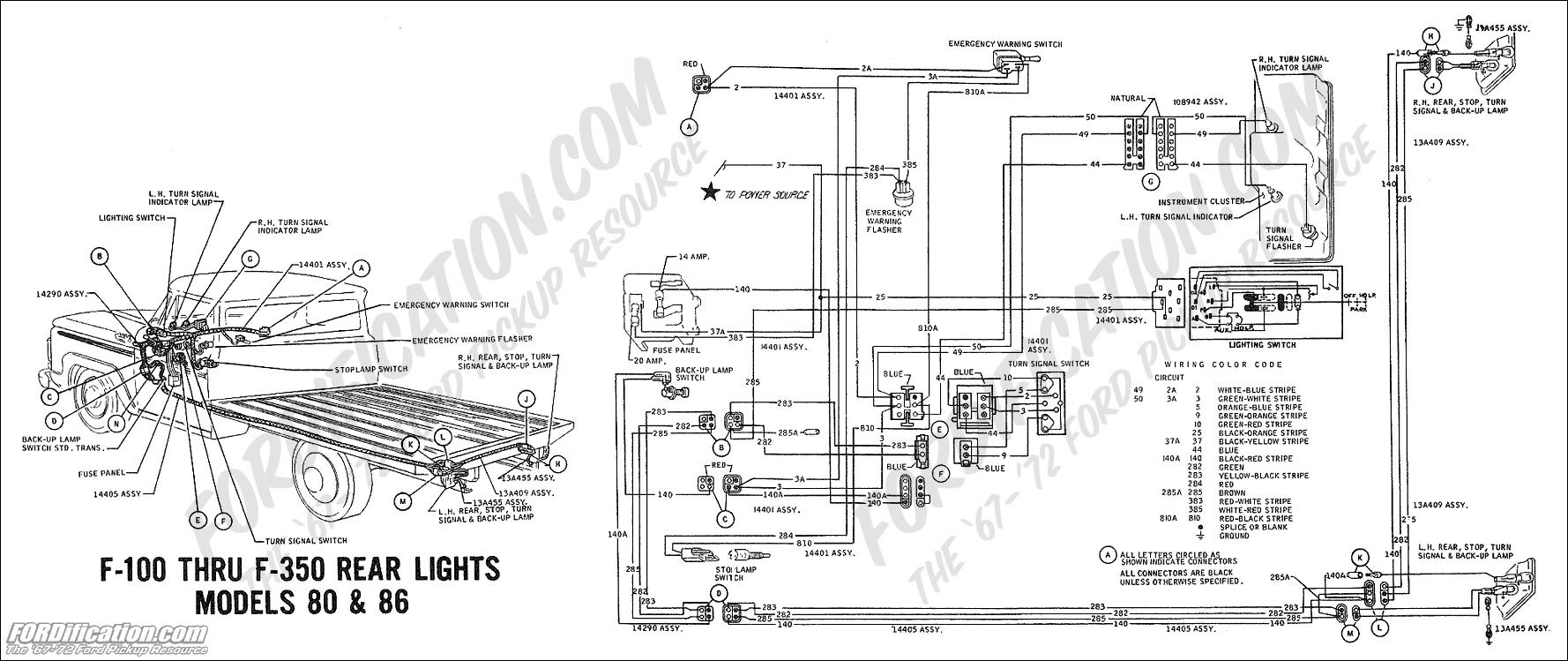When it comes to ensuring the proper functioning of the lighting system on your 1995 Ford F350, having access to a reliable tail light wiring diagram is essential. This diagram provides a detailed overview of the wiring connections and components involved in the tail light system, allowing you to troubleshoot any issues that may arise effectively.
Why 1995 Ford F350 Tail Light Wiring Diagrams are Essential
- Help in identifying and understanding the wiring connections for the tail light system
- Aid in diagnosing and fixing any electrical issues that may occur
- Provide a clear visual representation of the wiring layout for easy reference
- Assist in ensuring the proper installation of new components or upgrades
How to Read and Interpret 1995 Ford F350 Tail Light Wiring Diagrams
Reading and interpreting a wiring diagram may seem daunting at first, but with a little guidance, you can easily navigate through the information provided. Here are some tips:
- Start by familiarizing yourself with the key symbols and color codes used in the diagram
- Trace the wiring paths to understand how the electrical current flows through the system
- Pay attention to the connections between components and any potential points of failure
- Refer to the legend or key for any specific details or annotations provided
Using 1995 Ford F350 Tail Light Wiring Diagrams for Troubleshooting Electrical Problems
When faced with electrical issues in your tail light system, a wiring diagram can be a valuable tool in helping you pinpoint the source of the problem. Here’s how you can use the diagram for troubleshooting:
- Identify the affected circuit or component in the diagram
- Check for continuity and proper voltage levels at key points in the wiring
- Follow the wiring path to locate any potential short circuits or breaks
- Compare the actual wiring connections with the diagram to spot any discrepancies
Importance of Safety When Working with Electrical Systems
Working with electrical systems, including tail light wiring, requires caution and adherence to safety measures to prevent accidents or damage. Here are some safety tips to keep in mind:
- Always disconnect the battery before starting any electrical work
- Avoid working on wet or damp surfaces to prevent electric shock
- Use insulated tools and wear protective gear like gloves and goggles
- Refer to the vehicle’s manual for specific safety guidelines and precautions
1995 Ford F350 Tail Light Wiring Diagram
1995 Ford F350 Tail Light Wiring Diagram – Search Best 4K Wallpapers

Ford F350 Wiring Diagram Tail Lights – Wiring Technology
Ford F350 Tail Lights Unique | Wiring Diagram Image

Ford F350 Wiring Diagram

Ford F150 Tail Light Wiring Diagram – Wiring Diagram

Ford F350 Wiring Diagram Tail Lights – Wiring Diagram
